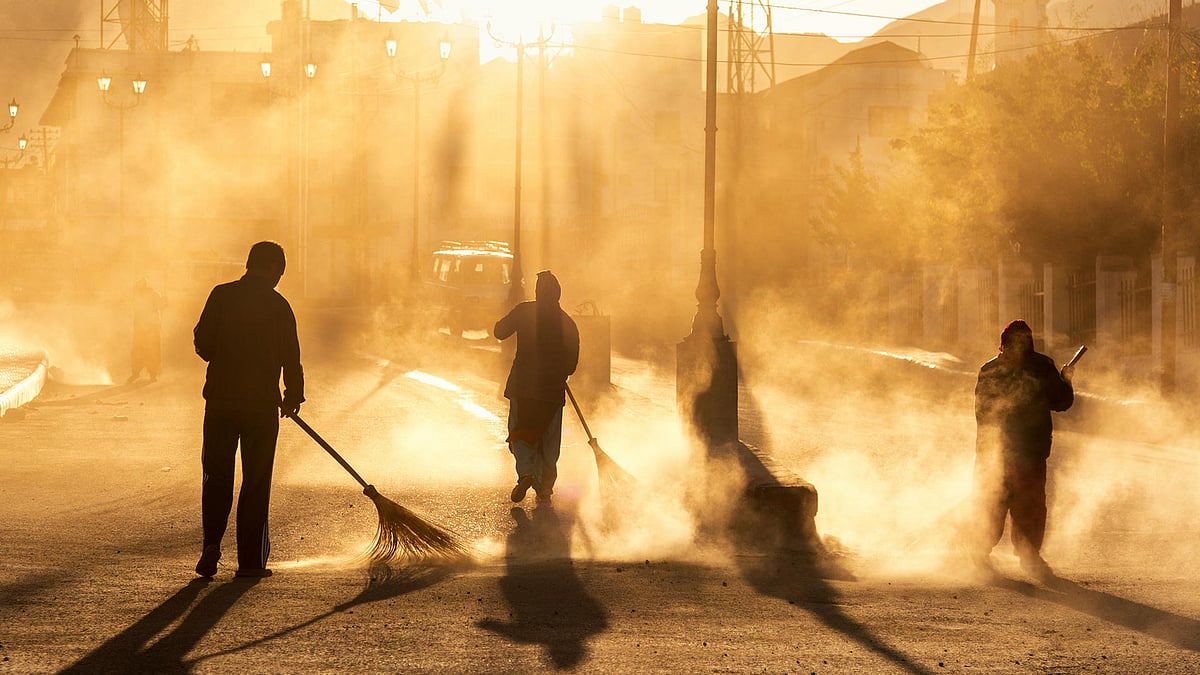Bihar's returning migrants are battling yet another problem — mosquitoes
Sleepless nights and a lack of mosquito nets have driven some migrant workers to even flee quarantine centres.
Mosquito nets are closely tied to nocturnal plans in Bihar. A few years ago, a Bhojpuri pop song even gave the mosquito net its due. A wife expressed her desire for a missing husband with these lines, “Mann kare silawat pe lorha se, kuch di jawani rajau/kauno saut sang kaat taara chaani lagage machhardaani rajau.”
Loosely translated, she sang, “I feel like crushing my youth; you must be having fun with some mistress under the mosquito net, my dear.”
Amorous motives aside, the mosquito net is seen as a guaranteed move towards sound sleep in large parts of both rural and urban Bihar, scoring over more contemporary mosquito repellants. Unsurprisingly, it figures in the list of provisions that the state disaster management authority directed all 38 district magistrates to supply to around 5,000 block-level quarantine centres in the state.
But this hasn’t happened at all quarantine centres. The reports of unrest and unruly behaviour from migrant workers being quarantined in these centres in Bihar can be traced to several factors, and important among them is the menace of mosquitoes and the absence of mosquito nets.
This seemingly trivial issue is one of the main tormentors for the quarantined migrants. Sleepless nights have even forced a few migrants to escape centres in different districts. There are regular media reports on the non-availability and scarcity of nets, and the resultant uproar and confrontations with officials managing the quarantine exercise in the state.
On May 19, Dainik Bhaskar reported that migrant workers quarantined at a school in Supaul district’s Basantpur block were demanding that they be provided with mosquito nets. The workers were spending sleepless nights due to mosquito bites.
A similar ruckus was seen at a quarantine centre in Muzaffarpur’s Aurai block. A report in Hindustan quoted a block development officer, who admitted that mosquito-net facilities had not yet been extended to the centre in Aurai. In a quarantine centre in Musahari block, also in Muzaffarpur, Hindustan Times reported that migrant workers “went on a rampage” demanding proper facilities. The mosquito net was one of their key demands.
For some reason, Muzaffarpur is notorious for swarms of mosquitoes. Mainly because of this, and the discomfort that’s felt more acutely in summer, even loyal residents can be heard saying in Bajjika, the local dialect: “Muzaffapur ke saanjh bari beekh hoyee chhai (Muzaffarpur evenings are toxic).”
The impervious attitude of mosquitoes here reminds one of the mosquitoes in Madna, the fictional district town in Upamanyu Chatterjee’s 1988 novel English, August. The protagonist, a trainee IAS officer named Agastya Sen, was unable to shield himself from the mosquitoes even with the aid of repellants and a mosquito net.
Chatterjee wrote: “ Before going to bed he lit an anti-mosquito incense stick under the table and rubbed mosquito repellent cream all over himself. He slept under a mosquito net, but the mosquitoes got him anyway. He surfaced, struggling, out of sleep thrice that night, only to hear the mosquitoes droning in the glow from the veranda.”
For a newcomer spending his first few nights in Muzaffarpur, the futility of Agastya Sen’s fight against Madna’s mosquitoes might strike a chord.
Apart from the local media and state editions, the national press has also taken note of how mosquitoes are playing their part in troubling or driving out migrant workers from quarantine centres. Even before the influx of migrants in large numbers this month, the Hindu reported on the growing unrest in some quarantine centres. And the situation doesn’t seem to have changed over the weeks. If anything, it has been further aggravated.
The Hindu’s report, published on April 8, spotted a visible trend in some centres across Bihar: a number of migrants are slipping out of the centres at night and return during the day. While this exposes the lax security at the centres, the Hindu tried to look at other reasons behind this nightly escape. It quoted a village head from Sahasra district, who was entrusted with the task of checking the movement of quarantined workers.
Citing local pressure as a hindrance to this task, the village head added: “Moreover, how can we ask them to stay put in such hellish conditions at the local government schools, where swarms of mosquitoes start hovering overhead at dusk?”
This report was cited by the BBC a week later, in a news story on the factors driving migrants away from quarantine centres.
But the mosquito menace isn’t a major concern for only migrants in Bihar. Media reports from different parts of the country suggest that mosquitoes have been causing major problems for those staying at quarantine centres. A report in the Times of India, which examined the reasons why people were fleeing these centres, pointed out that a quarantine centre in Mumbai’s Breach Candy was reeling under the “menace of mosquitoes”.
Back in Bihar, apart from the obvious discomfort, the regional press has also been reporting on what has now become an annual concern: the threat of various mosquito-borne diseases like dengue. Newspapers have been alert to the problems these diseases can bring to the state’s limited health infrastructure, which is already burdened with addressing the medical exigency of the Covid-19 outbreak. As if to reassert the importance of mosquito nets, a report in Hindustan last month ended with expert advice on using the nets.
Not very long ago, roadside stalls in Bihar’s district towns would sell a slim general knowledge booklet, printed on cheap and scruffy paper. Amid the random assortment of dubious “facts” it offered, one was particularly intriguing. It said that France was the only country which had no mosquitoes.
Far from a fact, this was probably a fantasy driven by the need for a peaceful night’s sleep, and it made sense to sell it to generations of mosquito-vanquished Biharis. Until they get to live that fantasy, a mosquito net is their best bet against their nocturnal ordeal. After all, it isn't too much for a quarantined migrant worker to ask for a night's sound sleep.
***
The story of migrant workers shouldn't be seen only in the context of the Covid-19 outbreak. It's part of a much larger story on worker rights. These stories need to be told by media outlets that are fair and free, uninfluenced by corporate or government support. This is why you should pay to keep news free. Subscribe to Newslaundry today.
 A crisis of capital: Why migrant workers can’t be ‘managed’ with food and money
A crisis of capital: Why migrant workers can’t be ‘managed’ with food and money Bihar’s dual challenge: Tracking coronavirus infections, preparing for influx of returning migrants
Bihar’s dual challenge: Tracking coronavirus infections, preparing for influx of returning migrants